SUMMARY
This is AI generated summarization, which may have errors. For context, always refer to the full article.
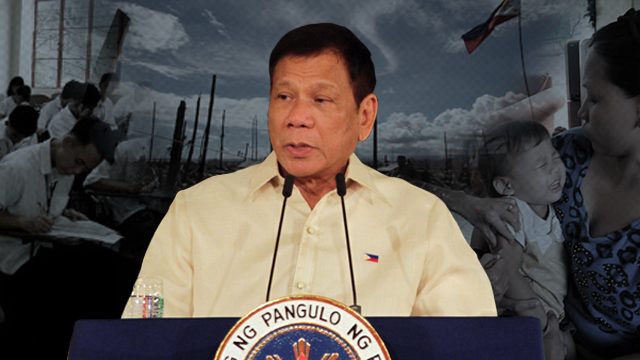
MANILA, Philippines – “I have promised you something and if you know me, I will really do it. I will do it even if I lose my life, my honor, and even the presidency.”
The words of then presidential candidate Rodrigo Duterte resound as the Philippines’ 16th President is set to give his first State of the Nation Address (SONA) on Monday, July 25.
As part of his Constitutional obligation, Duterte will address the 17th Congress during the opening of its regular session on Monday.
During the annual speech, the President “reports on the state of the country, reveals the government’s agenda for the coming year, and may also propose to Congress certain legislative measures,” the Official Gazette said.
If Duterte’s speech during his proclamation rally is to be believed, the tough-talking President intends to keep all his campaign promises in the next 6 years. But which promises will make it to his first SONA?
Rappler looks back on Duterte’s campaign promises about education, health, and environment. What do experts, advocates, and members of civil society think about them?
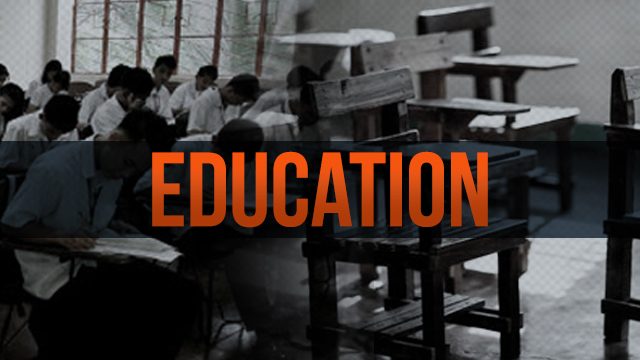
PROMISE: Education will be the second priority in the budget, after agriculture and before health.
 Benjie Valbuena, national chair of the Alliance of Concerned Teachers-Philippines: Since President Duterte wants change, and he has the support of Filipinos, maybe the automatic appropriation or the Presidential Decree 1177 can be repealed since many of its provisions do not benefit Filipinos. Maybe we can channel instead that budget for social services like education, housing.*
Benjie Valbuena, national chair of the Alliance of Concerned Teachers-Philippines: Since President Duterte wants change, and he has the support of Filipinos, maybe the automatic appropriation or the Presidential Decree 1177 can be repealed since many of its provisions do not benefit Filipinos. Maybe we can channel instead that budget for social services like education, housing.* 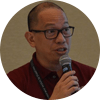 Dr Chito Salazar, president of the Philippine Business for Education: The focus of the administration must be on strengthening quality and survival in our public school system. K to 12 was a major step but this must be supported and deepened and strengthened. Our goal must be to build a public school system as strong as the private schools.
Dr Chito Salazar, president of the Philippine Business for Education: The focus of the administration must be on strengthening quality and survival in our public school system. K to 12 was a major step but this must be supported and deepened and strengthened. Our goal must be to build a public school system as strong as the private schools.
PROMISE: Teachers’ salary will be doubled by 6 years.
Valbuena: Teachers welcome that proposal very much. Actually, teachers are not demanding for more than double – just an entry-level salary of P25,000 will do. The cost of living now in the National Capital Region is already at P30,000, but teachers are only earning P19,000 – way, way far below the poverty threshold.*
Salazar: Teachers are key to improving quality. But simply increasing salaries will not do this. Any increases need to be matched or even preceded by an improvement in evaluation, performance appraisal, and training. As a matter of fact, rather than across-the-board increases, merit-based improvements in salary would go further in improving quality.
PROMISE: Government will build adequate classrooms for students.
Valbuena: Because we really lack classrooms right now…. What happens is, schools divide classrooms into two. The student population continues to increase, but we are not getting additional classrooms, which is why this proposal of Duterte is good. Reduce class size, construct more classrooms.*
Salazar: Education, I believe, remains to be one of the main ways out of poverty. But for this to happen we need to focus not only on access but on quality. So much has been said about expanding access…but access to low quality education doesn’t do much…. We must talk about improving quality and outcomes as much as we talk about access. This is the only way people will genuinely not be left behind.
PROMISE: Government will provide scholarships for children of members of the military who die in the line of duty.
PROMISE: School subjects such as algebra, calculus, and trigonometry should be replaced with business mathematics.
Valbuena: That will be substandard. It should be complete and certain subjects should not be removed. If business math, it can be the title, but it should still carry algebra, calculus, and trigonometry…. It has to be comprehensive.
If there would be an overhaul of the curriculum, it should not be limited to math only, so that the curriculum matches or becomes more appropriate to the needs of our graduates.*
Salazar: Of all the things he should emphasize in the SONA, it is the full support for the K to 12 [curriculum].
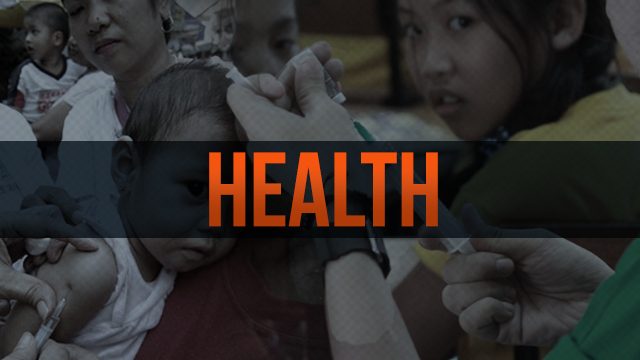
PROMISE: All hospitals will be required to have a facility for indigent patients, with government paying for the health services using PhilHealth reserve funds, sin tax revenues, and the budget of the health department.
 Dr Tony Leachon, PhilHealth director and president of the Philippine College of Physicians Foundation: That’s a laudable move…. The source of funds could be sin taxes, the Department of Health budget, and PAGCOR, and I saw a bill by Senator Recto proposing to earmark PCSO funds for health.
Dr Tony Leachon, PhilHealth director and president of the Philippine College of Physicians Foundation: That’s a laudable move…. The source of funds could be sin taxes, the Department of Health budget, and PAGCOR, and I saw a bill by Senator Recto proposing to earmark PCSO funds for health.
Either they legislate this, or they look for additional taxes…. That move by President Duterte is okay, but the problem through the years has always been budget…. Basically, I think that’s doable, as long as there is a staff responsible to man the hospital.*
PROMISE: Government will create specialized hospitals in the Visayas and Mindanao.
Leachon: It’s just right to create these hospitals because by distance, it would be difficult if someone from the province has to go all the way to Manila to undergo a heart operation. But education, research, and training should be replicated from Manila to the areas where you see the need. You have to assign competent personnel in those hospitals, or else who will man them?*
PROMISE: Government will establish a trust fund for the payment of medical expenses of Filipinos confined in hospitals.
Leachon: President Duterte’s proposal is a trust fund where everything is under one roof like a one-stop shop where you can request for the payment of expenses not covered by PhilHealth…. But a blueprint is needed on how to implement that. I think it should be under the Department of Health, but with representatives from funding agencies like PCSO and PAGCOR.*
PROMISE: Every barangay will have one doctor – someone who would act as the physician of that barangay.
Leachon: We don’t have a national workforce plan wherein the number of doctors to be deployed in your area will be based on your population. If we don’t have enough doctors, we can also tap health care professionals, because in Cuba, not all deployed health workers are doctors. This is preventive, anyway…. That can be done, but not one doctor for every barangay because we don’t have enough doctors.*
PROMISE: Government will sustainably push preventive health programs in the country.
Leachon: On preventive medicine, the Department of Health should coordinate with the DILG, DepEd, or DOLE to implement that. For example, there will be a memorandum of agreement on a smoke-free policy. It will be an inter-agency collaboration. That’s what they did in Cuba, preventive, so that we lessen the number of patients who go to and spend much in hospitals.
A health care system should actually be hinged on preventive health. The most important thing is to have a smoke-free environment…. We also have to change the diet of Filipinos. One thing we should add is the sin taxes for soda and junk food.
The FDA should also come out with a calorie counter, and a healthy food plate and all, in collaboration with the Department of Agriculture.*
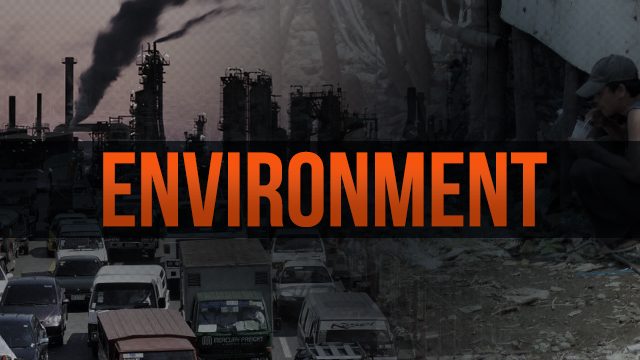
PROMISE: Government will create a single, permanent Emergency Response Department in charge of disaster preparedness, relief, and rehabilitation.
 Clemente Bautista, national coordinator, Kalikasan People’s Network for the Environment: It will be good if we have that agency because we can improve our disaster response for victims of natural calamities. If we implement this and if they come up with a comprehensive program, it shouldn’t only include immediate response, but also how to prevent the impact of natural calamities.
Clemente Bautista, national coordinator, Kalikasan People’s Network for the Environment: It will be good if we have that agency because we can improve our disaster response for victims of natural calamities. If we implement this and if they come up with a comprehensive program, it shouldn’t only include immediate response, but also how to prevent the impact of natural calamities.
For flash floods and landslides, we need a long-term solution and rehabilitation of our environment, particularly the forest areas. We also need to build flood control facilities.*
 Kris Berse, analyst on disasters and climate change from the University of the Philippines: At the outset, this move could resolve issues that have plagued the Office of Civil Defense in the past, especially those that relate to questions of authority, accountability, and capacity.
Kris Berse, analyst on disasters and climate change from the University of the Philippines: At the outset, this move could resolve issues that have plagued the Office of Civil Defense in the past, especially those that relate to questions of authority, accountability, and capacity.
First, it cannot just be an agency that will handle emergency response à la Davao’s 911. In order to effectively reduce the impact of disasters on our communities, we need to drastically lessen our vulnerabilities and strengthen our resilience before a disaster could happen.
Second, placing the agency directly under the Office of the President would enhance prioritization in government planning and programming and at the same time ensure command, communication, and control in times of disasters.
Third, it has to be a science-driven agency. Taiwan’s National Science and Technology Center for Disaster Reduction could be a good model for us on this.
PROMISE: Track down dirty factories and install state-of-the-art anti-pollution equipment to reduce the country’s carbon emissions.
Bautista: Regardless of whether or not Duterte agrees with the Paris climate agreement, the government should require companies and even government institutions to put up the best technology in controlling pollution. For example, when it comes to coal, until now we don’t have a study that looks into the effects of coal-powered plants. We don’t have a study on the kind of technology they use.*
Berse: Technology and regulation are good, but these can only do so much in limiting emissions from the industry sector. And we must bear in mind that our CO2 emissions also come from other sectors, such as transport, waste, energy, forestry, and agriculture. To effectively address this issue, we need to look at the totality of our so-called GHG sources and sinks.
PROMISE: Strictly implement regulations to ensure mining does not destroy the environment.
Bautista: There will be no responsible mining in the Philippines foor as long as the government’s programs and policies allow the private and foreign corporations to control the industry.
[We should] junk or repeal the Mining Act of 1995, [and] pass a new mining policy. We have available bills, particularly the People’s Mining Bill which will radically orient our mining industry providing our domestic needs.*
Berse: This is a step in the right direction, and so far, Secretary Gina Lopez has delivered. Hopefully, after this initial crackdown on erring mining firms, DENR will start looking into long-lasting policy reforms in the mining sector.
PROMISE: Government will lease out lands and islands for 30 to 50 years to developers.
Bautista: We don’t agree. We encourage Duterte to promote a nationalistic and patriotic government. That’s in our Constitution – our natural resources are part of our national patrimony. It should not be privatized.
We want to develop those areas but it should be under the control and investment of government. We are not prohibiting private and foreign investors, but you will regulate, not the other way around that they get to control our natural resources.* – Rappler.com
*Original quote is in a mix of English and Filipino
**Valbuena photo from ACT-Philippines Facebook page; Salazar photo from PBEd Facebook page; Berse photo from UP-NCPAG; Leachon and Bautista photos by Rappler
Add a comment
How does this make you feel?
There are no comments yet. Add your comment to start the conversation.